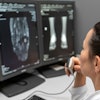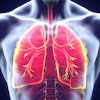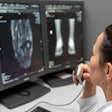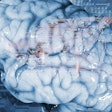Dear Artificial Intelligence Insider,
Can artificial intelligence (AI) help radiologists with the time-consuming task of evaluating thyroid nodules on ultrasound? Yes, it can, according to a Canadian research team.
A group from the University of Saskatchewan has developed a deep-learning algorithm that can characterize thyroid nodules on ultrasound with more than 95% accuracy. While their model is still being improved, the researchers believe it could help speed up interpretation times and avoid unnecessary biopsies in many indolent lesions. Our coverage of their work is the subject of this month's Insider Exclusive, which you can access before our regular members.
Researchers from Children's National Health System have developed a machine-learning algorithm that can accurately predict pregnancies with fetal growth restriction. Their approach, which makes use of 3D MRI features, also performed well for predicting birth weight. Click here to learn how AI may soon open up opportunities for interventions to protect vulnerable fetuses.
The automotive industry's development of self-driving cars can offer some insight into how AI will be adopted in radiology, according to a column by Eran Rubens of Philips Healthcare. Click here to learn why.
An AI algorithm can achieve accuracy similar to an expert radiologist's for detecting breast cancer, according to other recent research. A false-color enhancement technique that converts black-and-white shadows on mammograms into color played a key role in achieving a performance of 91% sensitivity and 80% specificity. Click here for all the details.
A team from Massachusetts General Hospital reports that a machine-learning algorithm shows potential for facilitating the holy grail of real-time, patient-specific dose estimates from CT scans. In a proof-of-concept study, the group found that its deep convolutional neural network could identify organs on CT datasets with approximately 99% accuracy -- the first step in creating real-time radiation dose estimates that are customized for individual patients. Click here for our report.
Dr. Eliot Siegel of the University of Maryland would like to see AI developers focus their efforts on developing algorithms that can help radiologists do their jobs faster and more efficiently. What's on his list of seven steps for better AI algorithms? Click here to find out.
Do you have an idea for a story you'd like to see covered in the Artificial Intelligence Community? Please feel free to drop me a line.




















